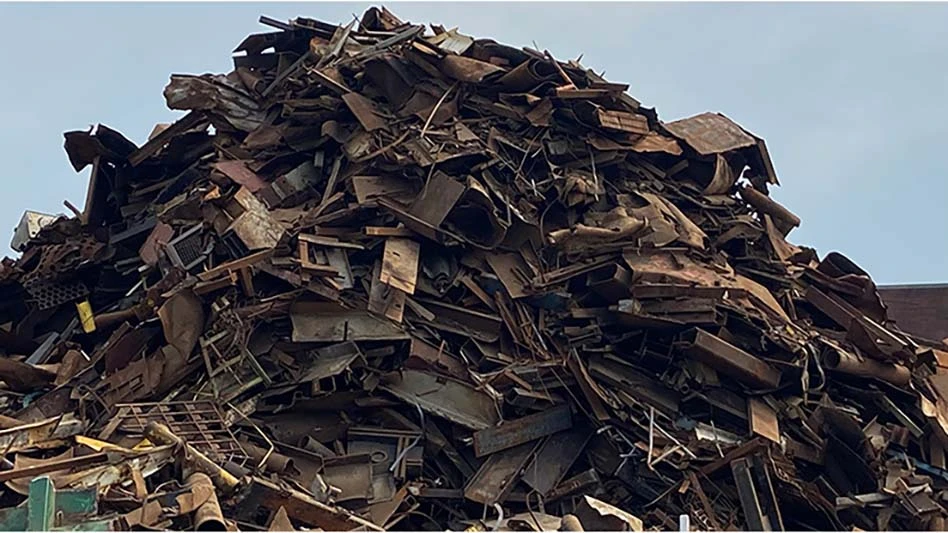A slumping export market, flat domestic markets, port problems and a general decline in generation of recovered fiber grades have made for a downbeat end to 2014 in the U.S. paper stock industry.
Entering 2015, there is a modest degree of optimism, though many paper stock dealers say a lack of recovery in the export market will put a cap on domestic markets.
U.S. paper stock dealers continue to see the supply of old newspapers (ONP) declining steadily, and many MRFs (material recovery facilities) on the East Coast have seen incoming volumes of this material decline significantly. Several sources in the Northeast report a number of prominent recycling operations face extreme financial difficulties in light of a combination of lower prices and fewer export outlets. In one case, New Jersey-based Green Sky Industries, one of the largest private recycling companies in that state, abruptly closed because of difficult market conditions. The move reportedly caught a number of its municipal customers by surprise.
Some producers of newsprint are shifting their production to other end products, especially packaging grades, and closures of newsprint mills and machines continue to be announced. Canada-based Resolute Forest Products, the largest newsprint producer in the world, has announced plans to permanently remove another 465,000 metric tons of newsprint production from the market.
High-grade markets also are experiencing significant challenges. Paper stock dealers who have grown their operations by serving the commercial printing market are seeing print shop generation decline. “Generation is off, and printers are closing down,” one source says.
A major problem is the significant slowdown at ports throughout the West Coast. Shippers are seeing a decline of 20 percent or more as steamship lines, railroad boxcars and trucks back up as a result, according to reports.
With negotiations between union workers and terminal operators resuming in December, even if a contract is signed soon, it could be quite a while before the situation corrects itself.
Although labor concerns are not an issue on the East Coast, exporters in this region say they are seeing a market-oriented challenge in the form of a fairly substantial drop in shipments of bulk grades to India.
When China started to cut back on purchasing from U.S. sources, many exporters shifted their tons to India. However, toward the end of 2014, the Indian market became saturated with recovered fiber imports, which has allowed some mills in the country to sharply cut their purchase prices and to demand better quality material.

Several sources have complained that buyers for Indian mill have agressively reduced the prices at which they will buy recovered fiber. These U.S. exporters say it is practically impossible to ship recovered fiber into the country at a profit.
Exacerbating the situation in India are reports that Russia is shipping finished newsprint rolls to India at fairly low prices, allowing Indian newsprint producers to reduce ONP orders from the U.S.
“There is no ONP business in India right now,” one East Coast broker says.
Compared with the export market, U.S. mills are in better shape, though sources say bulk grades, such as OCC (old corrugated containers), are a “bit soft.” Mills seems to have enough inventory and are not looking to buy additional tons, one source points out.
Another source says that while everything is moving, prices are flat at best.
The Southwest may see a modest uptick in OCC demand early in 2015. Grupack of Mexico has started a new machine and may be buying some OCC from the Texas market.
More promising is the restart of one of International Paper’s machines at its Valliant, Oklahoma, containerboard mill. Although preliminary reports have the mill restarting by the first half of 2015, one source says the mill has been buying and warehousing OCC in anticipation of this.

Explore the January 2015 Issue
Check out more from this issue and find your next story to read.
Latest from Recycling Today
- Global Recycling Day event supports Pittsburgh school's recycling efforts
- President signs executive order on critical minerals
- Registration opens for Scrap Expo 2025
- Toyota opens ‘circular factory’ in UK
- Agilyx works with former Plastic Energy CEO on sourcing venture
- 2 factors raise ferrous export questions in April
- Analyst: Scrap imbalance lost amid copper’s critical status
- AF&PA report shows decrease in packaging paper shipments







